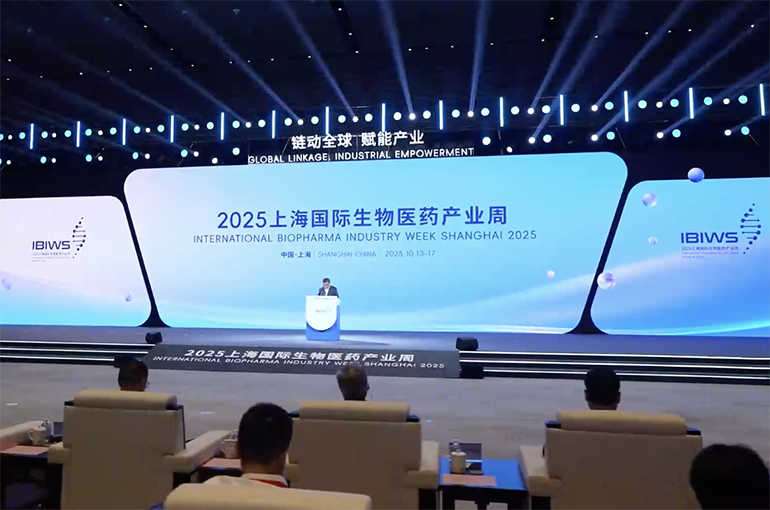Select Language:
China’s biotech sector is rapidly transitioning from relying on product exports to becoming a leader in value exports, transforming cross-border deal-making, valuation approaches, and long-term international strategies, according to industry experts attending the International Biopharma Industry Week and the 12th BioCentury-BayHelix China Healthcare Summit in Shanghai.
Historically, licensing out products has been the primary route for Chinese biotech companies seeking global recognition and revenue. It offered a straightforward, one-time deal that quickly bolstered cash flow, according to Gao Lu, Vice President of Business Development at Shanghai Medicilon. He explained that licensing remains a dominant business model. Data from the first half of the year show that licensing-out agreements by Chinese biotech firms were worth over USD 66 million, surpassing the entire USD 51.9 billion of the previous year.
Nevertheless, the emerging “NewCo” model is gaining ground. This approach involves Chinese biotech companies creating new entities, often with backing from foreign venture capital, to oversee the development and management of overseas assets. Gao describes this as a progression from product trade to value trade, allowing companies to share the long-term value of their assets through equity while maintaining more control over research and development. For instance, Medicilon’s partner, Hengrui Pharma, has secured over USD 14 billion in deals related to its novel drugs with global industry leaders as of August.
Multinational corporations are paying close attention to these NewCo entities, which are seen as both competitors and complements in the market. Deepa Talapade, Senior Vice President and Head of Business Development and Licensing in Oncology and Radiology at Bayer, pointed out that these new entities can be viewed as both rivals and partners. The initial NewCos typically focused on mature, late-stage products backed by substantial clinical proof, but many are now evolving to handle early-stage projects in Phase I trials or even pre-IND stages, expanding the competitive landscape and raising costs for overseas firms trying to acquire Chinese assets.
This shift has led to more expensive deals and a debate about whether valuations are overinflated. Talapade noted that deal prices have soared in recent months, rendering smaller biotech firms vulnerable as they may demand excessively high prices. If multinationals refuse these inflated offers, startups might lack the funds needed to continue their research. Conversely, if multinational firms agree to such prices, they assume significant risk, especially if clinical trials do not meet expectations, leaving them responsible for potential high costs and failures.
When asked if current valuations are justified or inflated, Gao responded that both perspectives are natural as the market seeks equilibrium. She emphasized that such high valuations reflect a profound change in the industry’s valuation standards — assets with innovative, first-in-class, or best-in-class potential are now valued similarly to mature products in previous years. Overall, valuations are driven by the clinical and commercial potential of the assets on a global scale.
Bayer, taking a cautious approach due to rising prices, prefers straightforward licensing deals but remains flexible if partners demonstrate added value. Talapade mentioned the company’s interest in authentic innovation, such as antibody-drug conjugates and biospecific antibodies with novel payloads, and she emphasized the importance of understanding the biological origin and scientific integrity of drug candidates. Bayer’s focus on precision medicine means they only advance assets if they clearly understand which patient populations will benefit.
To foster high-quality asset development and strengthen collaborations, Bayer is adopting a partnership approach that extends beyond traditional licensing. During her visit to Shanghai, Talapade met with colleagues at Bayer Co.Lab, a global network of life sciences incubators designed to support disruptive innovation. Located in the Shanghai Innovation Park, part of Zhangjiang Science City, it provides space, mentorship, and resources to up to 15 startups, efficiently nurturing early-stage companies into commercial entities. Bayer leverages this model to build strategic relationships early, often engaging with startups before they reach maturity, even if no immediate deal ensues.
Despite the emphasis on scientific innovation, China’s biotech industry faces new challenges beyond research—particularly in global operations. Gao highlighted the importance for companies aiming at international markets to excel in navigating strict regulatory environments like those of the U.S. Food and Drug Administration and the European Medicines Agency, managing cross-border clinical trials, and addressing complex market access and intellectual property issues. Geopolitical tensions also complicate cooperation, but Gao believes that such hurdles will ultimately urge the industry toward genuine innovation and enhanced global competitiveness.
Talapade expressed optimism that both the U.S. and Chinese governments will find ways to work together, noting that recent policies, such as the U.S. Biosecure Act, haven’t completely halted biopharmaceutical manufacturing and collaboration. Gao added that future partnerships will likely hinge more on shared scientific data, complementary technologies, and common market interests than on geographic proximity.






